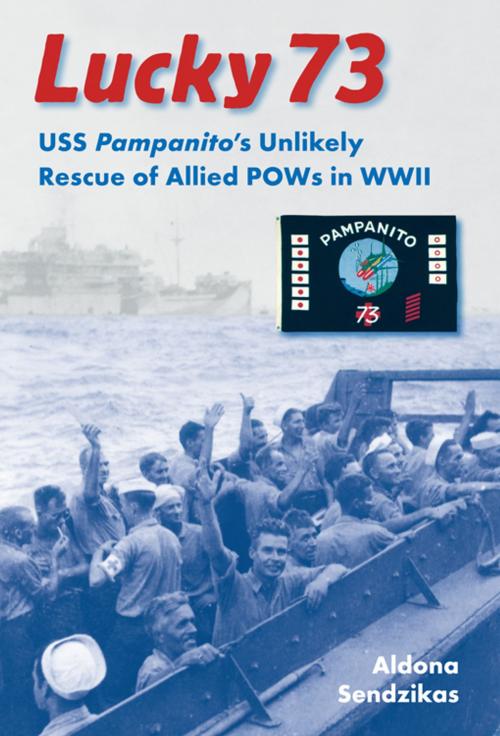Lucky 73
USS Pampanito's Unlikely Rescue of Allied POWs in WWII
Nonfiction, History, Military, Naval, World War II, Americas, United States| Author: | Aldona Sendzikas | ISBN: | 9780813047980 |
| Publisher: | University Press of Florida | Publication: | March 7, 2010 |
| Imprint: | University Press of Florida | Language: | English |
| Author: | Aldona Sendzikas |
| ISBN: | 9780813047980 |
| Publisher: | University Press of Florida |
| Publication: | March 7, 2010 |
| Imprint: | University Press of Florida |
| Language: | English |
Today USS Pampanito is a tourist destination. During WWII the submarine earned six battle stars, sank six Japanese ships, damaged four others, and rescued seventy-three British and Australian POWs from the South China Sea. Astonishingly, this rescue happened three days after she sank one of the transport ships on which the Allied prisoners were being ferried to Japan.
The chain of events that led to this rescue is truly remarkable. Captured in 1942, forced to spend fifteen months constructing the Burma-Thai Railroad, and then loaded onto floating concentration camps--hellships, as they were called--the prisoners were in the wrong place at the wrong time when Pampanito and her wolf pack attacked a Japanese convoy. Returning to the coordinates a few days later, the crew was astonished to discover survivors in the water from among the more than 2,200 prisoners who had been aboard the Japanese ships.
Even more remarkable is that the officers and crew of Pampanito, after picking up these men (the Lucky 73), thought to have them record their thoughts and experiences while the events were still fresh in their minds, before returning to port. While working as curator for Pampanito, Aldona Sendzikas discovered these documents and began an odyssey of tracking down one of the most incredible rescue stories of the Pacific War.
Today USS Pampanito is a tourist destination. During WWII the submarine earned six battle stars, sank six Japanese ships, damaged four others, and rescued seventy-three British and Australian POWs from the South China Sea. Astonishingly, this rescue happened three days after she sank one of the transport ships on which the Allied prisoners were being ferried to Japan.
The chain of events that led to this rescue is truly remarkable. Captured in 1942, forced to spend fifteen months constructing the Burma-Thai Railroad, and then loaded onto floating concentration camps--hellships, as they were called--the prisoners were in the wrong place at the wrong time when Pampanito and her wolf pack attacked a Japanese convoy. Returning to the coordinates a few days later, the crew was astonished to discover survivors in the water from among the more than 2,200 prisoners who had been aboard the Japanese ships.
Even more remarkable is that the officers and crew of Pampanito, after picking up these men (the Lucky 73), thought to have them record their thoughts and experiences while the events were still fresh in their minds, before returning to port. While working as curator for Pampanito, Aldona Sendzikas discovered these documents and began an odyssey of tracking down one of the most incredible rescue stories of the Pacific War.















